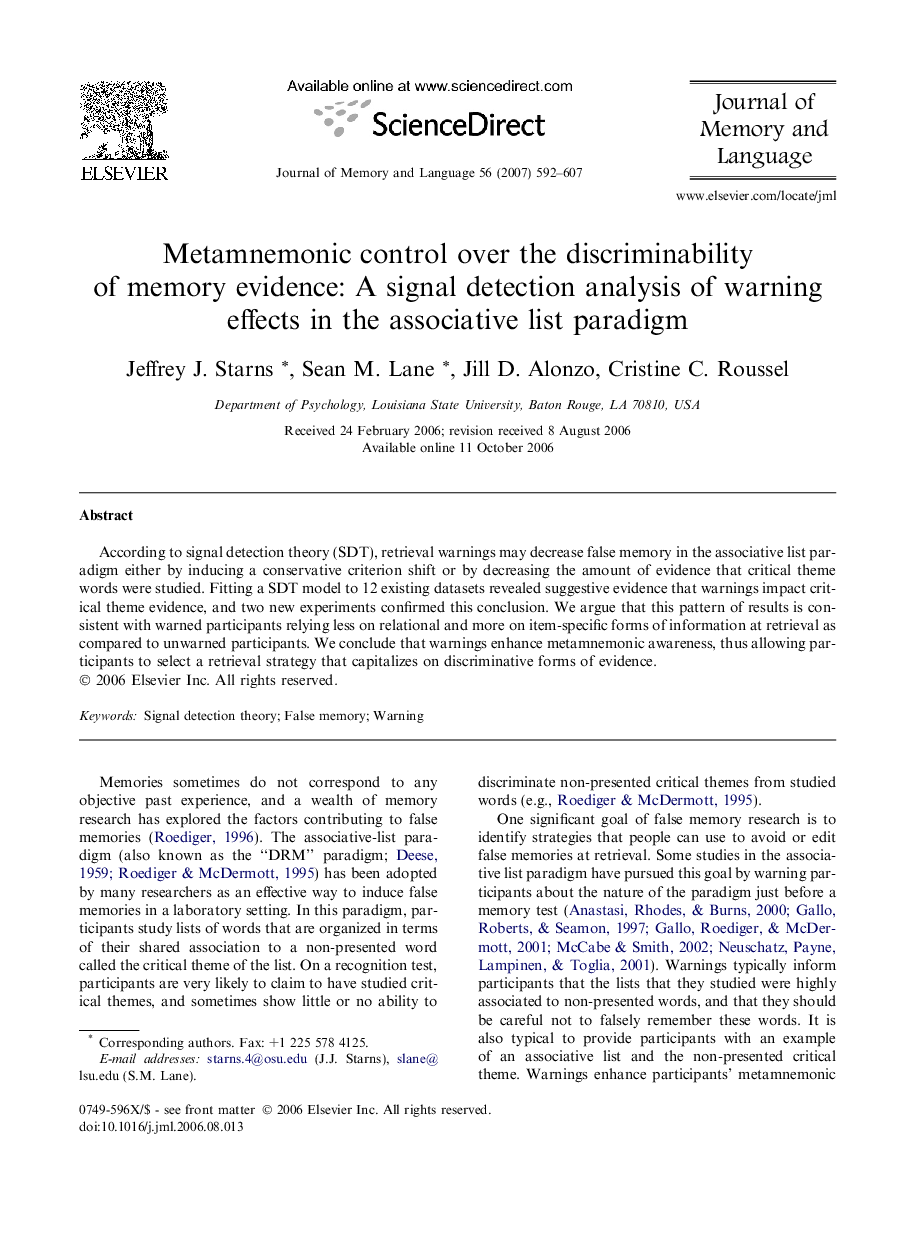| Article ID | Journal | Published Year | Pages | File Type |
|---|---|---|---|---|
| 932206 | Journal of Memory and Language | 2007 | 16 Pages |
According to signal detection theory (SDT), retrieval warnings may decrease false memory in the associative list paradigm either by inducing a conservative criterion shift or by decreasing the amount of evidence that critical theme words were studied. Fitting a SDT model to 12 existing datasets revealed suggestive evidence that warnings impact critical theme evidence, and two new experiments confirmed this conclusion. We argue that this pattern of results is consistent with warned participants relying less on relational and more on item-specific forms of information at retrieval as compared to unwarned participants. We conclude that warnings enhance metamnemonic awareness, thus allowing participants to select a retrieval strategy that capitalizes on discriminative forms of evidence.
